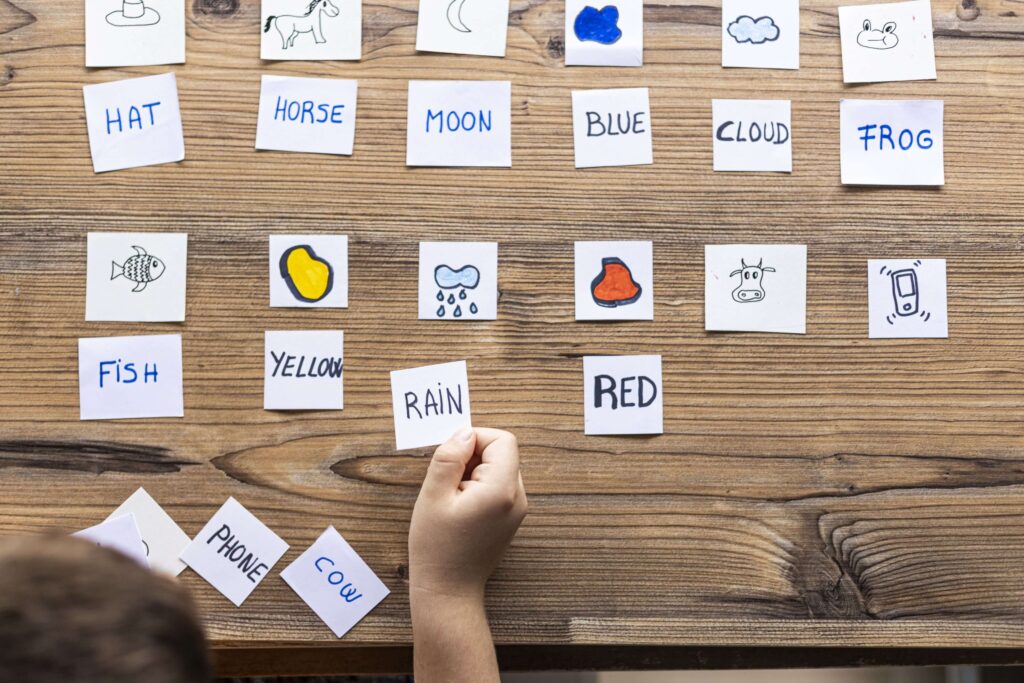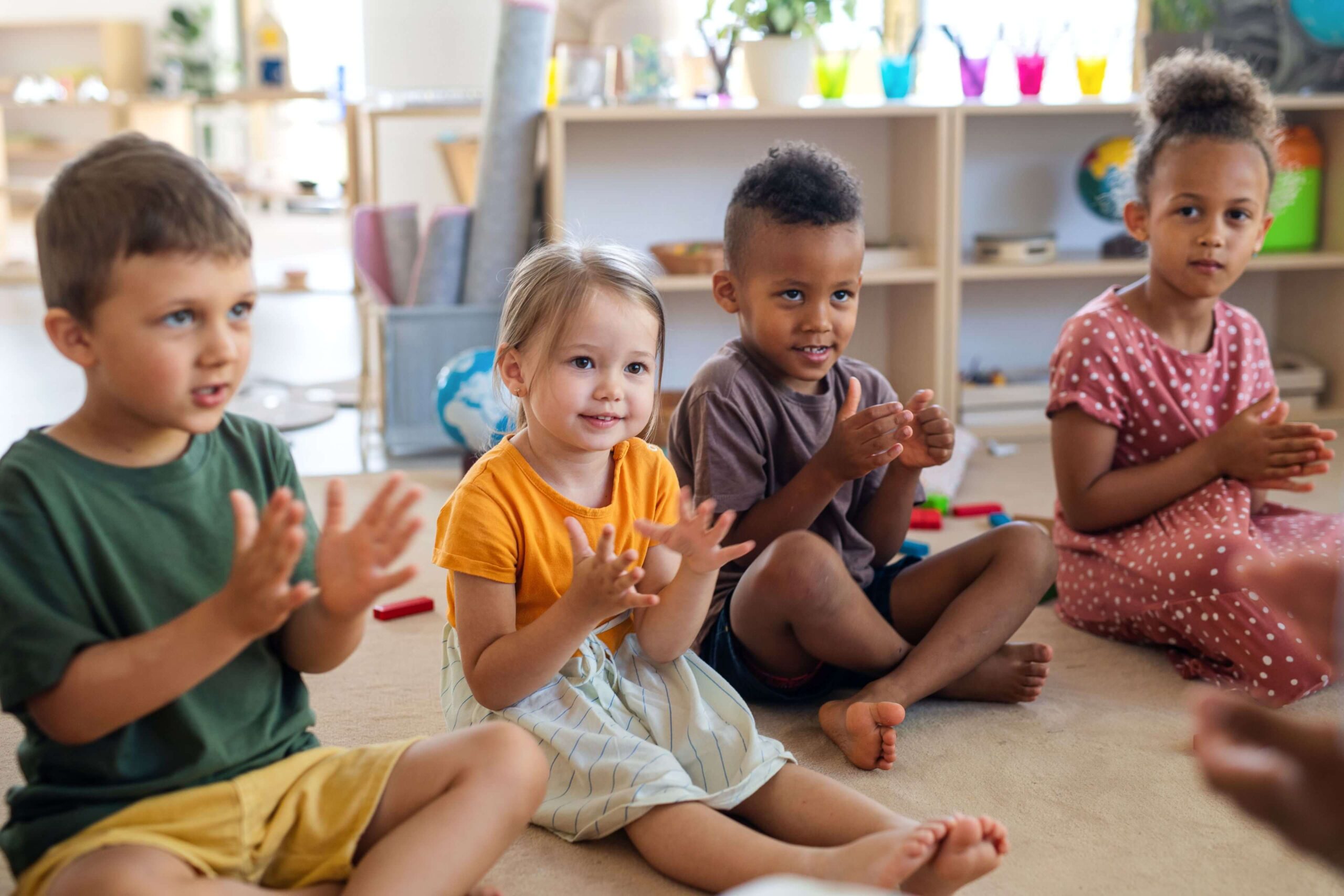Kilka lat temu panowała moda, by prowadzić dzieci do dwujęzyczności. Miało to sprawić, że dzieci nie tylko zyskają zdolności językowe, ale też wzmocnią się w nich inne cechy, które ułatwią im dobry start w przyszłość. Taką naukę należałoby zacząć najlepiej przed 3 rokiem życia. Musiałaby być stała i konsekwentna.
Kolejny aspekt to fakt, że dwujęzyczne osoby tworzą swój unikatowy system językowy. Powstaje on na podobnej zasadzie, co nasz natywny system językowy (pierwszy język), a więc poprzez codzienną spontaniczną interakcję i zabawę ze słowami. Język polski nabyliśmy m.in.: słuchając rodziców, testując sformułowania, bawiąc się głoskami, słowami i wyrażeniami, stopniowo zdobywając coraz większą pulę nazw i znaczeń, które umieszczane były w różnych kontekstach.
Chcąc więc „stworzyć” osobę dwujęzyczną, musiałaby ona mieć codzienny kontakt z dwoma językami w jej standardowym środowisku. Dwie godziny nauki w tygodniu nie wystarczą.
Drugiego języka nie uczy się tak samo
Wydawać by się mogło, że nauka języka powinna być taka sama niezależnie, czy mówimy o pierwszym, czy drugim języku. Tak nie jest. Jeśli chcielibyśmy, by drugiego języka dziecko uczyło się w sposób podobny do tego pierwszego, to przy jednej godzinie tygodniowo zajęłoby mu to koło 425 lat (do 4 roku życia zdobywamy około 17 000 godzin kontaktu z językiem natywnym). Nie ma więc na to czasu, a i sposoby też mamy lepsze.
O ile nie mamy do czynienia z sytuacją, w której dziecko dwujęzyczne stworzyło sobie naturalnie mieszany system językowy, to drugiego języka uczymy się, bazując na podstawie z naszego pierwszego języka oraz na bardziej świadomej pracy, czyli na nauce słówek i odkrywaniu struktur gramatycznych. Z tego powodu młodszym dzieciom ciężej jest opanować kolejny język, niż nastolatkom czy dorosłym. Nie posiadają bowiem jeszcze na tym etapie wystarczająco rozwiniętych systemów pierwszego języka.
Różne badania podzielały te wnioski. Młodszym dzieciom więcej czasu zajmuje opanowanie kolejnego języka niż ich starszym kolegom (czy dorosłym) przy takiej samej dawce materiału. Sama zaś nauka później startujących była bardziej efektywna i wykorzystywała różnorodne strategie czy dojrzałe mechanizmy językowe, które tylko wspomagały ten proces. Wnioski te są podobne dla osób o różnym pierwszym języku oraz uczących się różnych drugich języków.
W nauce języka nie do końca więc pasuje stwierdzenie: im szybciej, tym lepiej.
Kiedy zacząć uczyć się języka?
O ile nie wynika to z naturalnego kontekstu np. domu dwujęzycznego, to nie warto zaczynać usystematyzowanej nauki, nim dziecko nie opanuje dobrze pierwszego języka.
Jeśli zależy nam na szybkiej i efektywnej nauce języka, można spokojnie poczekać do lat nastoletnich lub dorosłych.
W przypadku dzieci przedszkolnych i wczesnoszkolnych nauka języka nie będzie ani szybka, ani efektywna. W dodatku efekty tej nauki mogą być tak naprawdę znikome. Nie warto jednak całkowicie rezygnować z nauki języka z nieco innego powodu.

Małe dzieci lubią się uczyć
Do nowego języka dzieci podchodzą pozytywnie i z otwartą głową. Wszystkie te badania, o których pisałam wyżej, podkreślały również, że może i wyniki nie były zachwycające w tej grupie wiekowej, ale z pewnością były to też najbardziej entuzjastyczne grupy do nauki czegoś nowego.
Jest to bardzo istotne w kontekście przyszłościowym. Jeśli dziecko w przedszkolu zaciekawimy językami i podtrzymamy entuzjazm do nauki języków, to za kilka lat prawdopodobnie dalej będzie chciało uczyć się języków. W wieku 7 lat już powoli zacznie zauważać, że nauka języka jest trudna, ale im lepiej zaopiekujemy naukę języka zabawą, tym ta dalsza praca może nie być dla nich taka przerażająca.
Dlaczego warto budować pozytywną relację do nauki języka?
Dzieci przedszkolne potrafią być niezwykle zmotywowane do nauki języka obcego. Na pytanie, czy lubią język obcy, aż 96,7% z nich odpowiedziało „tak”. Dla porównania, w innym badaniu tylko około 24% uczniów 5-6 klasy miało niski poziom lęku związany z nauką języka obcego. Zdecydowana większość posiadała średni lub wyższy.
Nauka języka obcego może budzić lęk w uczniach na późniejszych etapach. Najmocniej przejawiał się on w trzech sytuacjach:
- kiedy czuli, że innym idzie lepiej niż im;
- kiedy zostali wezwani do mówienia w obcym języku;
- kiedy czuli, że są „do tyłu” z przedstawianym materiałem.
Wniosek: głównie bali się negatywnej oceny przez innych oraz własnego nieadekwatnego poziomu językowego w stosunku do innych.
Dzieci oczywiście przyjmowały różne strategie radzenia sobie z tym problemem. Kiedy podchodziły do problemu analitycznie, pozwalały sobie na popełnianie błędów i wyciągały z nich wnioski, mogły wziąć własną edukację w swoje ręce lub potrafiły uzyskać wsparcie i feedback od innych, radziły sobie lepiej z językiem, ale przede wszystkim z własnym lękiem.
Tego wszystkiego można się uczyć już od najmłodszych lat, przy okazji od początku budując pozytywny obraz nauki języka obcego. Bezpiecznie – w ramach zabawy lub gier – dzieci mogą sobie testować słówka. Mówić na głos różne zwroty. Samodzielnie szukać wzorców. Swobodnie dopytywać o szczegóły. Przede wszystkim jednak nie muszą się obawiać oceny czy popełnionych błędów. Zawsze można zagrać jeszcze raz.
Jak zabawa wspomaga naukę języka obcego
Wszelkie sposoby pobudzające pamięć i emocje będą działały na plus. Już samo wykorzystanie gestów oraz obrazków przy nauce słówek języka obcego polepszyło wyniki testów. Efekty utrzymywały się nawet przez 6 miesięcy po treningu. Potem wystarczy je powtórzyć dla utrwalenia.
Dzieci przedszkolne lubią, kiedy aktywności są pełne rozrywki oraz zabaw motorycznych (np.: zabawa, gry, piosenki, bieganie). Doceniają sytuacje, w których są bezpośrednio zaangażowanie, doznają uznania i satysfakcji za prawidłowo wykonane zadanie i mają możliwość wyrażenia siebie w nowym języku. Wszystko to jest możliwe w ramach zabawy.
Dodatkowo, takie działania promują współpracę i wzajemną pomoc bez oceniania. Pozwala to również na swobodne popełnianie błędów oraz uczenie się z nich. Można również łatwo regulować poziom trudności języka.
A co z grami komputerowymi?
Jak wszystkie inne zabawy, gry dostarczają emocji oraz skonstruowane są tak, by budzić zaangażowanie i interakcje. Wszystkie badania naukowe zdają się właśnie to podkreślać. Jest to ważne, zwłaszcza dla tych dzieci, które boją się odezwać na zajęciach lub w kontekście zaciekawienia uczniów danym tematem.
Co do efektywności takich działań, to w zależności od różnych gier i sposobu ich wykorzystania, poziom wiedzy uczniów będzie podobny do tego z tradycyjnych zajęć lub wyższy. Sprawdzana była nauka wymowy, przygotowanie do większych testów czy nauka słówek. Jednak biorąc pod uwagę wcześniej wymienione walory, z pewnością warto się zainteresować tym sposobem na naukę języka obcego.
Aplikacje językowe w Knowla
Już wkrótce na twoim urządzeniu mogą pojawić się aktywności wspomagające naukę języków obcych!
Pozwolą dzieciom na swobodną zabawę ze słówkami. Dostarczą emocji i jasnej informacji zwrotnej o poprawności. Dzięki urządzeniu Knowla Box zaangażują dzieci do biegania oraz rzucania piłeczkami w różne pojawiające się elementy. Każda aktywność zawiera słówka w formie pisanej i czytanej.
Znajdziemy wśród nich:
- Planetę Hello! – z językiem angielskim
- Planetę Hola! – z językiem hiszpańskim
- Planetę Hallo! – z językiem niemieckim
- Planetę Salut! – z językiem francuskim
- Planetę Ciao! – z językiem włoskim
Każda z planet zawiera aktywności dla dzieci przedszkolnych i wczesnoszkolnych, które mają nakłaniać je do aktywnej zabawy słówkami w językach obcych.
Więcej szczegółów już wkrótce!
Źródła:
- https://www.cambridge.org/core/journals/journal-of-child-language/article/abs/early-bilingual-development-one-language-or-two/F9CF4211F5AA78CB377A4A7370375BB6
- https://api.repository.cam.ac.uk/server/api/core/bitstreams/106afaa9-8f41-439e-a096-c7b25a6c431d/content
- https://files.eric.ed.gov/fulltext/EJ1075755.pdf
- https://link.springer.com/article/10.1007/s10648-020-09527-z?fbclid=IwAR2k22dJYPqcVC8Wao_oe_benAsrtT_xGtwt75fRYYOc0t6C3O7_SLR2Y_I
- https://www.idpublications.org/wp-content/uploads/2019/08/Full-Paper-SOME-WAYS-OF-LEARNING-FOREIGN-LANGUAGE-AT-AN-EARLY-AGE.pdf
- https://www.tandfonline.com/doi/abs/10.1080/03004430.2010.485313
- https://hrcak.srce.hr/file/184679
- https://www.researchgate.net/profile/Ornella-Mich/publication/233201173_The_effectiveness_of_computer_assisted_pronunciation_training_for_foreign_language_learning_by_children/links/54dc8da10cf282895a3a8f29/The-effectiveness-of-computer-assisted-pronunciation-training-for-foreign-language-learning-by-children.pdf
- https://ijlls.org/index.php/ijlls/article/view/22


